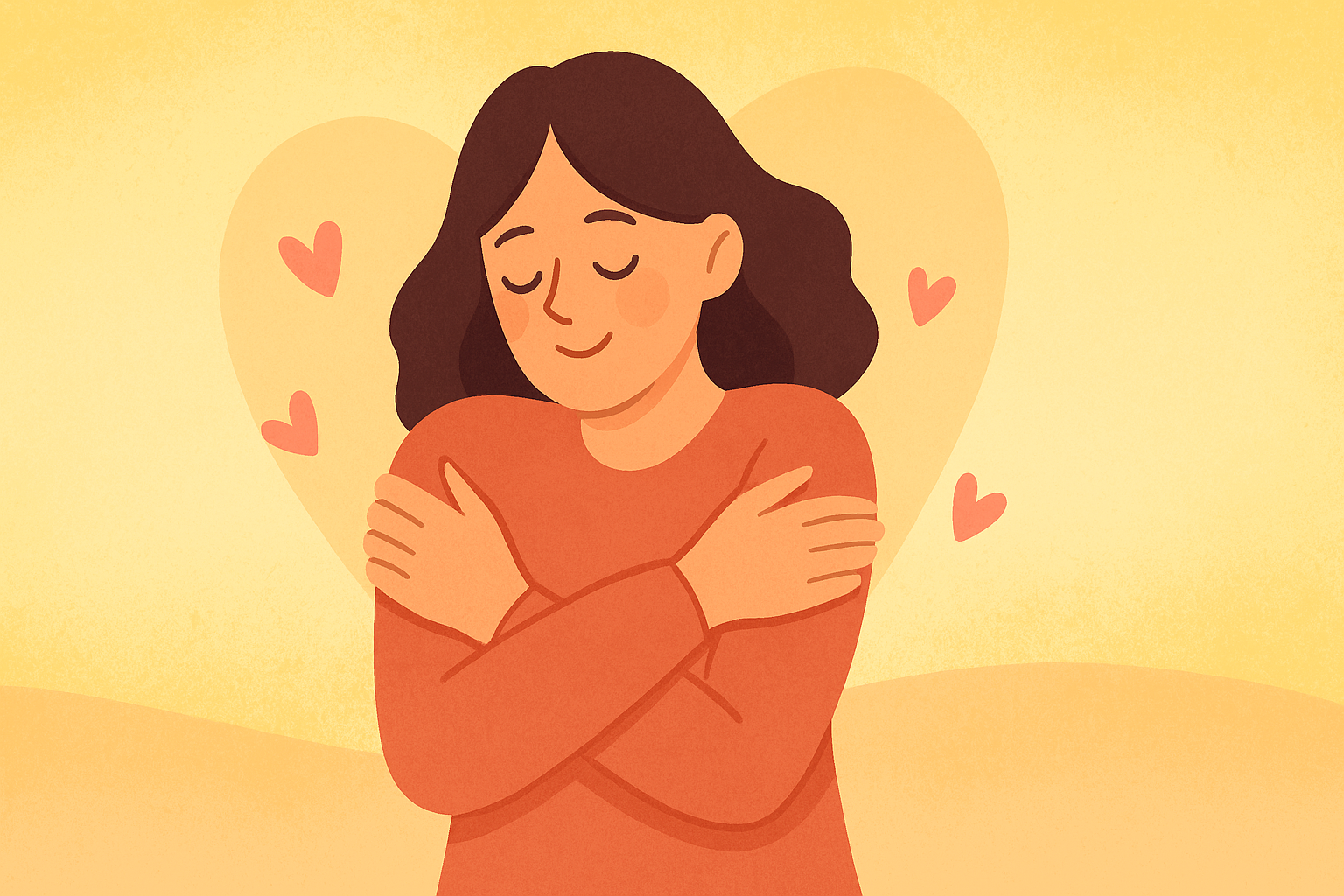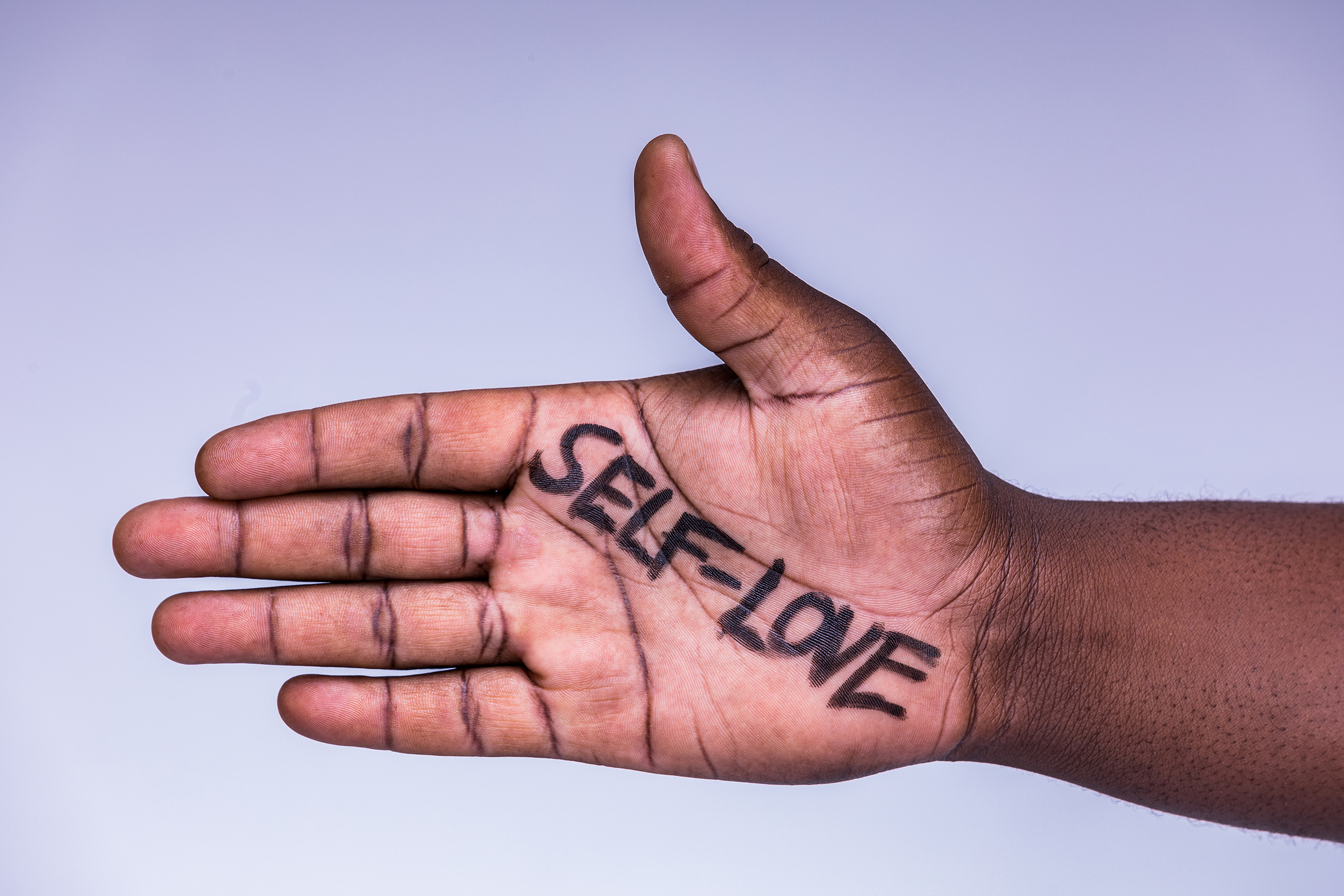
Emilie Mauricio
January 15, 2026
•
7 min read

Self-care Sunday. Bubble baths. Face masks. We've all seen the Instagram posts. But what happens when the candles burn out and you're still stuck with that critical voice in your head telling you you're not enough?
Here's the thing: self-care treats the symptoms, but self-compassion transforms the root cause. While self-care asks "What do I need right now?", self-compassion asks "How can I be kinder to myself, especially when things go wrong?"
Picture this: You've had a rough week. Deadlines piled up, you snapped at a friend, and that presentation didn't go as planned. So you do what everyone says—practice self-care. You take a bath, order takeout, binge-watch Netflix.
But Monday morning hits, and guess what? That inner critic is right back, louder than ever: "You're so lazy. Everyone else has their life together. Why can't you just get it right?"
Sound familiar? You're not alone. One in six young people struggle with mental health challenges, and researchers have found that self-criticism is a major risk factor for depression and anxiety—even when people are actively practicing self-care routines.
This is exactly what we explored in our guide to "20 Fresh Ways to Boost Your Mood"—many of those mood-boosting activities are fantastic for temporary relief, but they don't address the underlying self-critical patterns that keep us stuck.
The problem isn't that self-care doesn't work—it's that it's only treating the surface. Self-compassion goes deeper.
Self-compassion isn't about becoming soft or making excuses. It's about developing the same kindness toward yourself that you'd naturally show a good friend going through a tough time.
Dr. Kristin Neff, a leading researcher in this field, breaks self-compassion into three core components:
1. Self-Kindness vs. Self-Judgment Instead of beating yourself up when you mess up, you acknowledge that mistakes are part of being human. You replace "I'm such an idiot" with "That was a mistake, and I can learn from it."
2. Common Humanity vs. Isolation You recognize that struggling, failing, and feeling inadequate are universal human experiences. You're not uniquely flawed—you're human.
3. Mindfulness vs. Over-Identification You observe your thoughts and feelings without getting swept away by them. Instead of "I AM anxious," you think "I'm FEELING anxious right now."

Here's where it gets interesting. Studies show that people with higher self-compassion have lower rates of anxiety and depression, better emotional resilience, and even stronger motivation to improve themselves. One comprehensive review of research published in the Annual Review of Psychology found that "self-compassion is a productive way of approaching distressing thoughts and emotions that engenders mental and physical well-being."
Why? Because when you're not constantly fighting an internal battle with self-criticism, you free up mental energy for actual growth and healing.
Research has tracked people over time and found some fascinating patterns. "Individuals who are more self-compassionate tend to have greater happiness, life satisfaction and motivation, better relationships and physical health, and less anxiety and depression." Meanwhile, self-criticism at age 12 has been shown to predict lower educational achievement, relationship dissatisfaction, and social maladjustment well into adulthood.
Here's what most people don't understand about self-compassion: it's not about becoming soft or letting yourself off the hook. It's about creating psychological safety—the same conditions that help plants grow but applied to your inner world.
Think about it this way: when you're constantly under attack (even from yourself), your nervous system stays in survival mode. Your brain literally can't access the parts responsible for learning, creativity, and emotional regulation when it thinks you're under threat. Self-criticism hijacks your mental resources, leaving less available for the growth you actually want.
As we detailed in our exploration of "When Your Body Speaks Your Mind", this mind-body connection means that harsh self-criticism doesn't just hurt emotionally—it creates real physical stress responses that can manifest as headaches, muscle tension, sleep problems, and even digestive issues.
Self-compassion, on the other hand, signals safety to your nervous system. When you feel secure, your brain can focus on problem-solving, connecting with others, and building the life you want.

Real self-compassion isn't a one-time practice—it's a skill you build over time. And just like any skill, it gets stronger with consistent practice and the right tools.
This is where modern mental wellness apps can make a real difference. Unlike traditional therapy, which can cost hundreds of dollars per session, AI-powered mental wellness platforms like Brightn offer personalized, accessible support that adapts to your unique needs.
Brightn's approach goes beyond basic meditation apps by focusing on three core pillars: Health, Wealth, and Purpose. This holistic framework recognizes that authentic self-compassion isn't just about being nice to yourself—it's about building genuine resilience across all areas of your life.
Here's how each pillar supports self-compassion:
Health: When you're physically and mentally well, you have more capacity for self-kindness instead of self-criticism. Brightn helps you track mood patterns and build healthy habits that support emotional regulation.
Wealth: Financial stress often triggers our harshest inner critic. By helping you build financial literacy and healthy money habits, Brightn removes one major source of self-judgment and anxiety.
Purpose: When you have a clear sense of meaning and direction, setbacks feel less like personal failures and more like learning opportunities on your journey.
Through personalized AI journaling, you can:
This type of structured journaling goes beyond traditional diary-keeping. It's about building mental resilience through consistent, compassionate self-reflection—turning your inner dialogue from critic to ally.

Let's make this concrete. Here are three ways to start building authentic self-compassion today:
The Friend Test When you catch yourself in harsh self-criticism, pause and ask: "What would I say to a friend going through this exact situation?" Then say that to yourself instead. Our research on breaking mental health stigma shows that we're often much kinder to others than we are to ourselves—this technique helps bridge that gap.
The Humanity Check When you mess up, remind yourself: "This is one moment in my life, not a defining characteristic of who I am. Millions of people have felt exactly what I'm feeling right now." This moves you from isolation into connection. Remember, as we discussed in our post about exam anxiety strategies, acknowledging shared human struggles actually reduces individual shame and anxiety.
The Growth Question Instead of asking "Why am I so bad at this?", try "What can I learn from this experience?" This simple shift moves you from self-attack to self-improvement. It's the same mindset that helps athletes use journaling as "mental reps" rather than just emotional venting.
Self-care will always have its place—there's nothing wrong with enjoying a relaxing evening or treating yourself kindly. But if you want lasting change in how you relate to yourself, self-compassion is where the real transformation happens.
The goal isn't to eliminate all negative thoughts or difficult emotions. It's to change your relationship with them. When you can meet your struggles with kindness instead of criticism, you create space for genuine healing and growth.
Here's the transformation that's possible: instead of your inner voice being your harshest critic, it becomes your wisest ally. Instead of avoiding challenges because you're afraid of messing up, you approach them knowing that whatever happens, you'll treat yourself with compassion. Instead of feeling alone in your struggles, you remember that imperfection is part of the shared human experience.
Ready to build a more compassionate relationship with yourself? Brightn's AI-powered platform offers personalized tools to help you develop authentic self-compassion that goes way beyond surface-level self-care.
Download Brightn and start your journey toward lasting mental wellness today. Because you deserve more than temporary fixes—you deserve genuine transformation.

Ready to explore more? Check out our other insights on managing test anxiety with self-compassion, understanding how mental and physical health connect, and creating sustainable self-care practices.